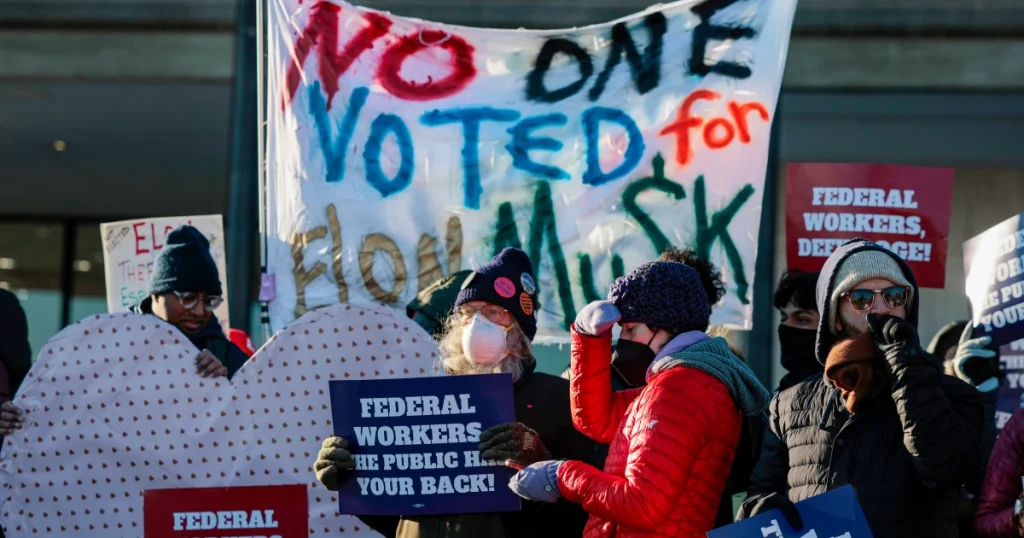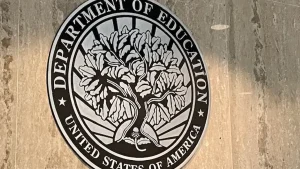Fired Federal Workers Speak Out: Under Attack by Billionaires.
A wave of recent federal employee terminations has left many workers reeling, particularly probationary hires who have fewer protections under federal employment laws. Hanna Hickman, a former senior litigation counsel at the Consumer Financial Protection Bureau (CFPB), described the emotional turmoil of being fired after just under two years with the agency. "It's scary," she told ABC News. "I had a real moment—I was at CVS the other day and ... it kind of came on me all at once that I might not have health insurance in a few weeks, and that really hits you. I think it underscores the fact that we're just regular, middle-class people, just like the people we're trying to serve."
Hickman’s termination is part of a larger pattern of mass layoffs hitting federal agencies, particularly those in financial regulation, education, and veterans’ affairs. These layoffs have predominantly affected new employees—those who have worked at their agencies for one to two years and are classified as probationary workers. While these employees are generally still in their probationary period, they often perform critical functions within their departments.
The method of termination, with sudden notices sent without prior warning, has caused significant distress among these workers. Many employees, like Hickman, were shocked to receive their firing notices at night and discovered they had been locked out of the system immediately after receiving them. "It was shocking, frankly—not just to us but to our direct managers, who had not been told this would happen and received notice of the terminations at the same time we did," Hickman explained. The abruptness of the firings and the lack of clear explanations have left many workers feeling betrayed and confused.
The consequences of these layoffs have far-reaching implications, not just for the workers but for the public as well. Employees like Hickman, who worked to protect consumers from financial exploitation, believe that these terminations are part of a larger effort to privatize or dismantle vital government services. Hickman voiced concerns about the role of billionaires like Elon Musk in pushing for government streamlining, saying, "We're under attack by billionaires, but I'm not a billionaire, so, you know, for me, the next steps are scary. I'm trying to stay focused working productively, but it's a scary moment."
This lack of transparency and communication surrounding the layoffs has compounded the anxiety felt by federal workers. Many of those let go received vague termination memos, citing insufficient performance but providing no specific reasons or detailed feedback. As a result, employees have been left scrambling to understand why they were targeted. Chelsea Milburn, a disabled veteran who was laid off from the Department of Education, expressed frustration over the ambiguity surrounding her firing. “I was definitely upset,” Milburn shared. “I've only ever gotten positive feedback from my team and leadership, so I was pretty surprised to get that email.”
The impact on public servants is particularly striking, as many of these employees had dedicated their careers to public service and had a strong sense of mission in their work. For individuals like Hickman, who had spent years building expertise in her field, the layoffs feel personal, as if the valuable work they were doing to protect the public is now being undermined. Workers at the Department of Education and the CFPB expressed frustration over the privatization push linked to figures like Elon Musk, who are part of the effort to streamline government agencies. These actions are viewed as attempts to dismantle important regulatory bodies that work on behalf of everyday Americans, potentially sacrificing crucial public services in favor of corporate interests.
Moreover, the uncertainty and fear faced by laid-off employees only adds to the distress. Many are left without answers about their severance packages or health insurance, with little to no clarity on what the future holds. The confusion surrounding benefits and the lack of information from HR departments has left workers feeling unsupported and vulnerable. The potential impact on government functioning is also a pressing concern, as the loss of experienced professionals within key agencies could harm the effectiveness of vital public services. The recent firings highlight the precariousness of federal employment, especially for probationary workers, and raise questions about the long-term consequences for the government’s ability to serve and protect its citizens.





















